Global Recession in 2016 and Beyond - The Obvious Evidence
Economics / Recession 2016 Apr 27, 2016 - 05:29 PM GMTBy: Rajveer_Rawlin
 Definition of a Recession:
Definition of a Recession:
The textbook definition of a recession is two quarters of negative GDP growth. Some examples of recessions include the great depression of the 1930's, the dotcom crash of 2000 and the great recession of 2008.
Causes of a Recession:
Recessions are caused by several factors. These include:
- Hyper Inflation
- Deflation
- Prolonged Fall in Exchange Rates
- Credit Crunches
- Collapsing Consumer Confidence
- Collapsing Asset Prices
- Collapsing Global Trade
- Bust following Excessive Speculation - e.g., Property Market in Japan -1989
Evidence so far Leading up to 2016:
1) Collapsing Commodity Prices:
Recessions caused by deflation see massive collapses in asset prices. There has been a well over 50% plunge in the prices of industrial commodities such as copper and oil (http://www.nasdaq.com/markets):
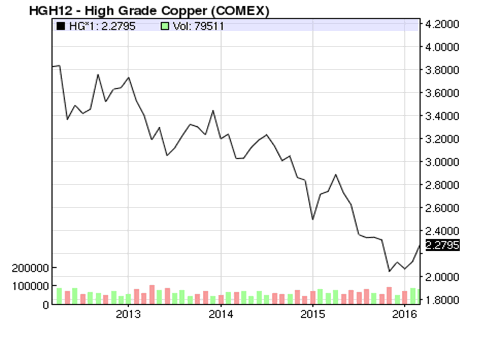
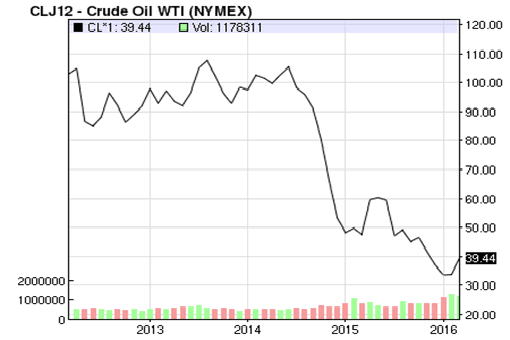
2) Collapse in Freight Rates:
Freight rates as measured by the Baltic dry index have collapsed over 95% from their highs set in 2008. While temporary dislocations can cause the index to fluctuate quite a bit, the well over 95% collapse in the index is an indication that all is not well with the global economy (http://investmenttools.com):
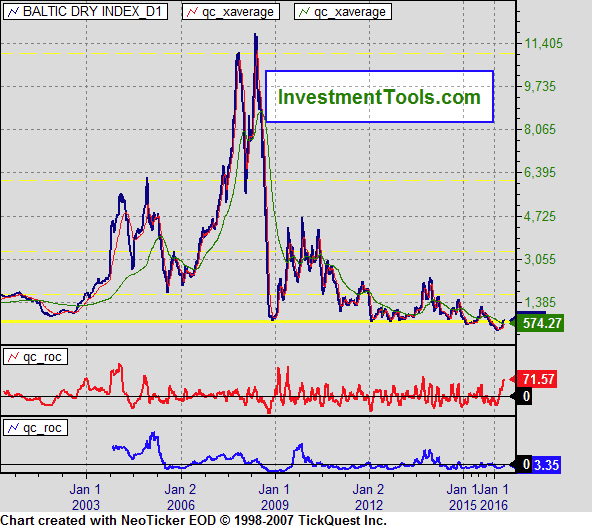
3) Collapsing Stock Markets:
Stock Markets across the world have been collapsing despite record low interest rates globally (data from yahoo finance):
China:
Chinese stocks are down over 40% from recent highs:
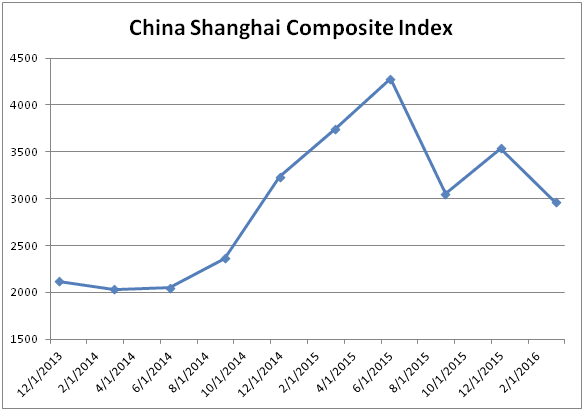
India:
India's stock market has entered a bear market recently falling 20% from the highs set in 2015:
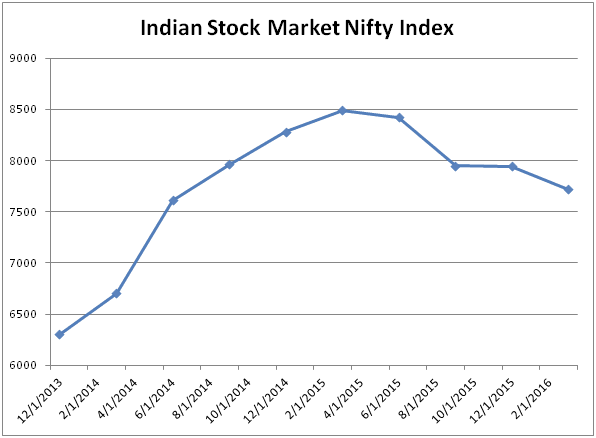
USA:
The US S&P 500 is very ominously breaking down from a massive multi-year rising wedge much like in 2000 and 2008 but much bigger this time around (http://www.charts.stocktwits.com):
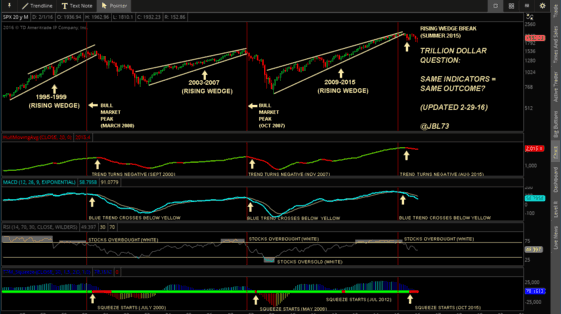
4) Dollar Strength:
The Dollar has strengthened against virtually every other currency the last five years (data from marketwatch.com):
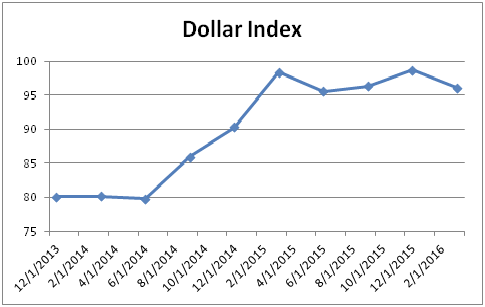
5) Yen strength:
The Yen has strengthened significantly off late against most currencies suggesting that carry trade liquidation may begin in earnest globally much like in 2008 (data from marketwatch.com):
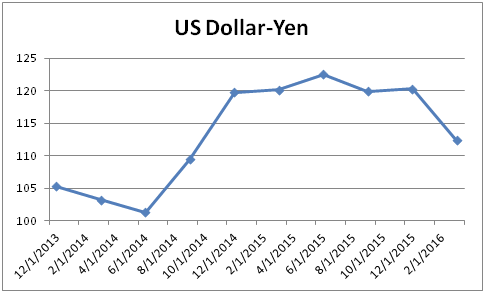
6) Excessive Speculation & Risk Taking:
We are all familiar with the excessive speculation in the housing market that led to the great recession of 2008 following the collapse of Bear Sterns and Lehman Brothers. Fast forward to 2016 and the risk exposures at some big banks are reaching alarming levels as ETF daily news points out the case of Deutsche Bank:
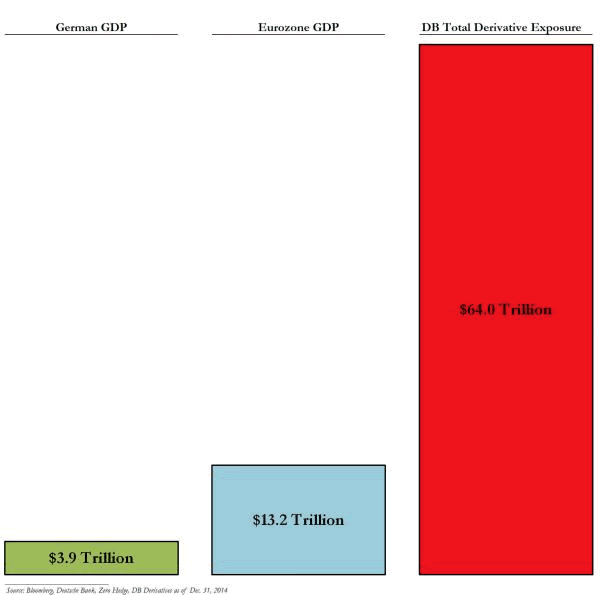
7) The velocity of Money is below Great depression levels:
As forecaster Martin Armstrong points out (armstrongeconomics.com) the velocity of money is currently below that observed in the great depression of the 1930's. This implies that despite multiple rounds of quantitative easing by global central banks the attempt to circulate money throughout the global economy has failed and money has reached only a few pockets. The velocity of money typically declines during recessions and is probably forecasting one ahead:
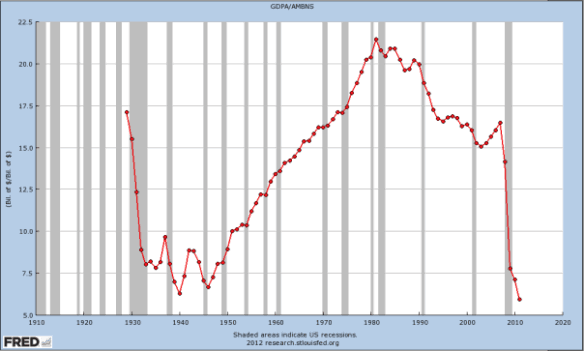
8) Kondratieff Winter Wave Suggests a Collapse Ahead:
Finally looking at long term economic cycles we are entering a traditionally weak period for risk assets which tend to make lows every 8 years or so marked by economic troughs. We recently had major economic downswings in 1992, 2000 and 2008 and are due one in 2016. Other than this we have entered a Kondratieff winter wave in 2000 and are set to emerge out of it only in 2020. The last few years of the winter wave could produced the most pronounced down swing in economic activity much like the last winter wave that was characterized by the Great Depression of the 1930's. Here is a summary from kondratieffwavecycle.com:
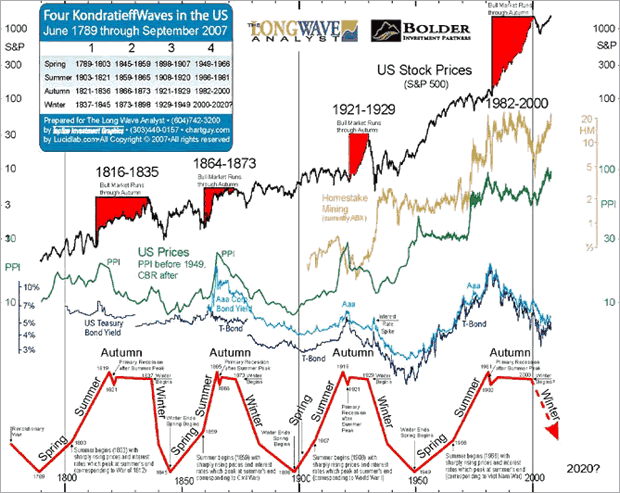
Conclusion:
In conclusion several hall marks of a recession such as collapsing commodities, stock markets and collapsing currencies have already started to play out as we enter 2016 and deflationary forces seem to be taking control. Flight to quality in safe haven assets such as the Dollar and Yen suggest risk appetite is rapidly declining. The massive fall in shipping activity is also providing evidence that a massive slow down is at hand. Excessive speculation as evidenced by the risk exposures of prominent global financial institutions is also a major concern. Additionally the velocity of money has collapsed suggesting that the circulation of money through the economy is simply not occurring despite record low interest rates. Last but not least long term economic cycles also are suggesting that the upcoming recession could last at least till 2020 and the final effects of this major down cycle are yet to be felt.
References:
1) Commodity prices available from, http://www.nasdaq.com/markets
2) Baltic Dry Index chart available from, http://investmenttools.com/futures/bdi_baltic_dry_index.htm
3) Long term rising wedge on the S & P 500 available from stocktwits.com/production/original_50424141.?1456781305
4) Is Deutsche Bank AG (USA) The Next Lehman? Available from, http://etfdailynews.com/2016/02/04/is-deutsche-bank-ag-usa-the-next-lehman
5) Velocity of Money Below Great Depression Levels, available from, https://www.armstrongeconomics.com/international-news/north_america/americas-current-economy/velocity-of-money-is-below-great-depression-levels
6) Kondratieff wave cycle, available from, http://www.kondratieffwavecycle.com/images/kondratieff-wave2.jpg
By Rajveer Rawlin
rajveersmarketviews.blogspot.in
http://www.linkedin.com/pub/rajveer-rawlin/3/534/12a
Rajveer Rawlin received his MBA in finance from the University of Wales, Cardiff, UK. He is a Associate Professor Faculty at M. S Ramaiah Institute of Management. His research interests includes areas of Capital Markets, Banking, Investment Analysis and Portfolio Management and has over 15 years of experience in the above areas covering the US and Indian Markets. He has 9 publications in the above areas. The views expressed here are his own and should not be construed as advice to buy or sell securities.
© 2016 Copyright Rajveer Rawlin - All Rights Reserved
Disclaimer: The above is a matter of opinion provided for general information purposes only and is not intended as investment advice. Information and analysis above are derived from sources and utilising methods believed to be reliable, but we cannot accept responsibility for any losses you may incur as a result of this analysis. Individuals should consult with their personal financial advisors.
© 2005-2022 http://www.MarketOracle.co.uk - The Market Oracle is a FREE Daily Financial Markets Analysis & Forecasting online publication.



